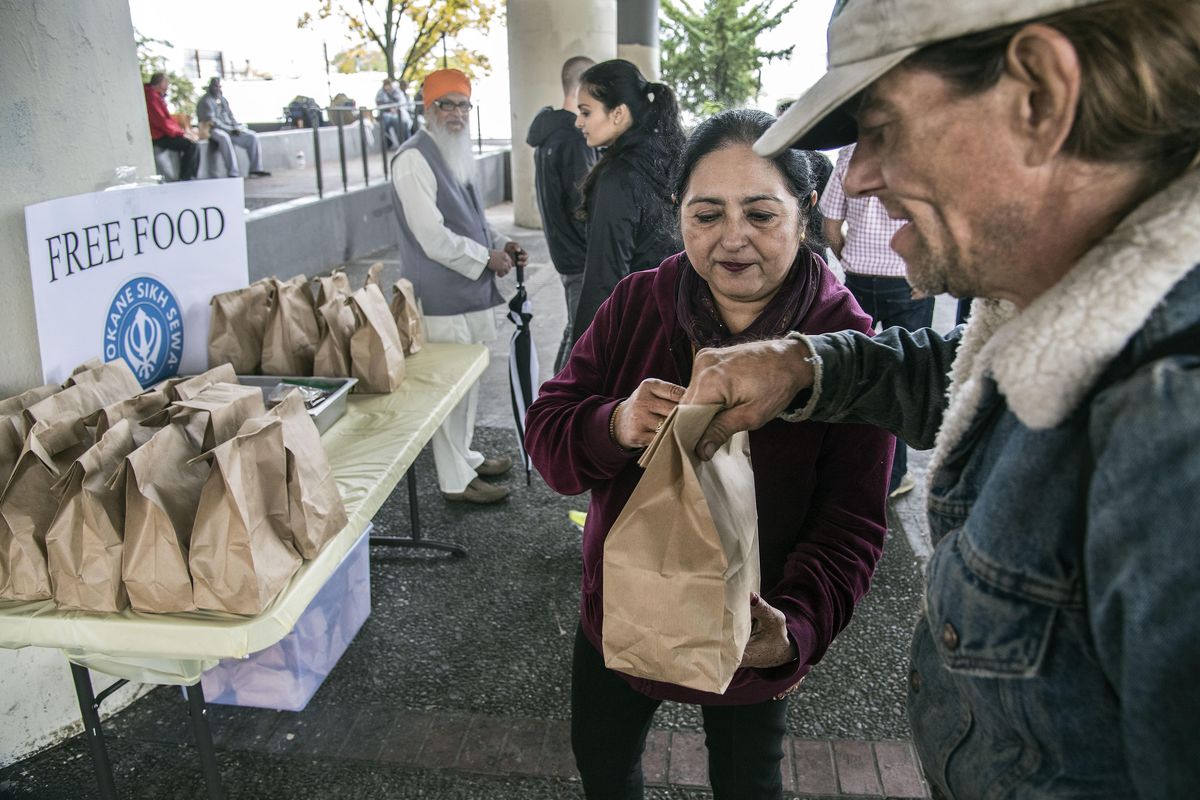Sikh Temple observes tradition by feeding downtown Spokane’s homeless

On Saturday afternoon Lee Butcher sat under the bridge at Fourth and McClellan streets, sheltered from the rain, and ate peanut butter and jelly sandwiches with his fiancée, Heather. Their kitten, JJ, sipped fresh water from a lid.
Soon others came, gratefully taking brown bags from a table with a sign that read, “FREE FOOD – Spokane Sikh Sewa,” which means “selfless service.”
It was the Sikh Temple of Spokane’s first ever mobile langar, a tradition temple member Jaspreet Singh said dates back to the Sikh’s founder, Guru Nanak, more than 500 years ago.
The concept of langar, Singh explained, is that it’s a time for everybody to be in the same place and eat the same food as a way to practice equality. Traditionally a langar is attached to a Sikh temple and is a free community kitchen.
“No one is rich, no one is poor. There is no difference,” he said, adding that it upholds the Sikh principle to serve all humanity.
With enough resources and volunteers on hand, now was the right time to take the langar on the road.
Member Prabh Kochar said it’s a Sikh’s duty to help the homeless so on Saturday volunteers from the temple – called a gurdwara – packed 150 brown bag lunches for Spokane’s downtown homeless, and within about two hours had delivered all the food.
“There are a lot of places that don’t serve food or are closed on Saturday, so I think this is really helpful,” said Butcher. “I’m happy to have this group out here, a lot of people will appreciate it.”
Kenneth Harrison, who recently landed in Spokane with his wife, daughter and two dogs, said encountering the mobile langar was a nice welcome to the city. His family is looking for work and housing, and until then are living in shelters or on the streets.
“The langar is a beautiful thing,” he said. “They are beautiful people, and I like the idea of spreading awareness.”
Kochar said there about 80 Sikh families in the Spokane area, and they are wanting to get more involved in the community – both to serve and to educate people about their faith.
Nimrat Kaur was one of the volunteers from the temple serving at the mobile langar. She said interacting with those gathered under the bridge was not only a way to begin building relationships with Spokane’s homeless, but also a way to practice humility.
“We need to be thankful for each and every thing we have,” she said.
The Sikh Temple plans to host the mobile langar regularly.